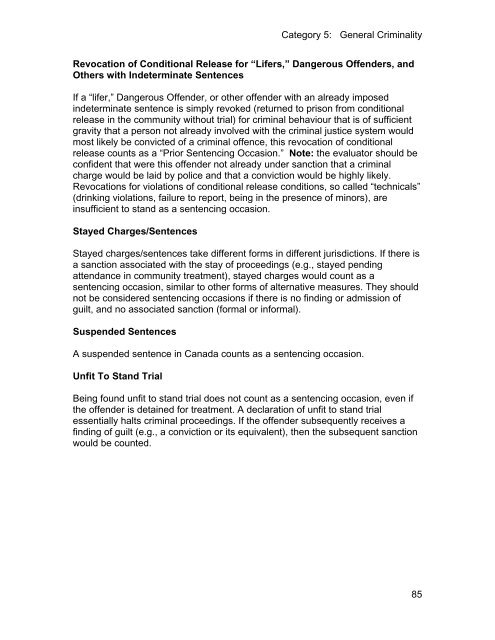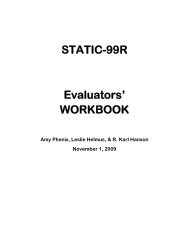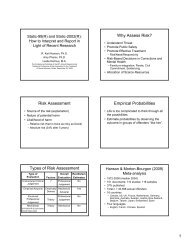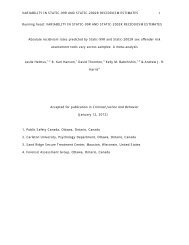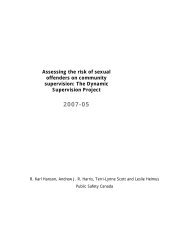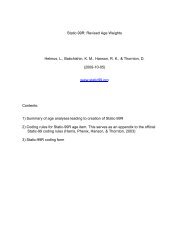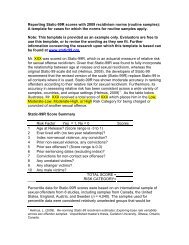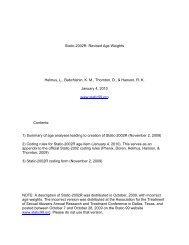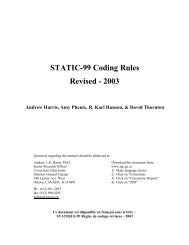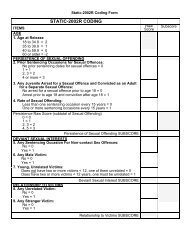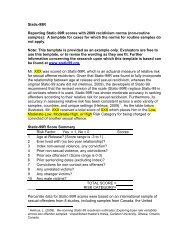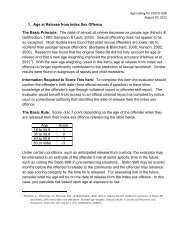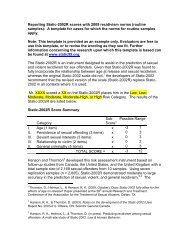Static-2002 coding rules (2009) - Static-99
Static-2002 coding rules (2009) - Static-99
Static-2002 coding rules (2009) - Static-99
Create successful ePaper yourself
Turn your PDF publications into a flip-book with our unique Google optimized e-Paper software.
Category 5: General Criminality<br />
Revocation of Conditional Release for “Lifers,” Dangerous Offenders, and<br />
Others with Indeterminate Sentences<br />
If a “lifer,” Dangerous Offender, or other offender with an already imposed<br />
indeterminate sentence is simply revoked (returned to prison from conditional<br />
release in the community without trial) for criminal behaviour that is of sufficient<br />
gravity that a person not already involved with the criminal justice system would<br />
most likely be convicted of a criminal offence, this revocation of conditional<br />
release counts as a “Prior Sentencing Occasion.” Note: the evaluator should be<br />
confident that were this offender not already under sanction that a criminal<br />
charge would be laid by police and that a conviction would be highly likely.<br />
Revocations for violations of conditional release conditions, so called “technicals”<br />
(drinking violations, failure to report, being in the presence of minors), are<br />
insufficient to stand as a sentencing occasion.<br />
Stayed Charges/Sentences<br />
Stayed charges/sentences take different forms in different jurisdictions. If there is<br />
a sanction associated with the stay of proceedings (e.g., stayed pending<br />
attendance in community treatment), stayed charges would count as a<br />
sentencing occasion, similar to other forms of alternative measures. They should<br />
not be considered sentencing occasions if there is no finding or admission of<br />
guilt, and no associated sanction (formal or informal).<br />
Suspended Sentences<br />
A suspended sentence in Canada counts as a sentencing occasion.<br />
Unfit To Stand Trial<br />
Being found unfit to stand trial does not count as a sentencing occasion, even if<br />
the offender is detained for treatment. A declaration of unfit to stand trial<br />
essentially halts criminal proceedings. If the offender subsequently receives a<br />
finding of guilt (e.g., a conviction or its equivalent), then the subsequent sanction<br />
would be counted.<br />
85


